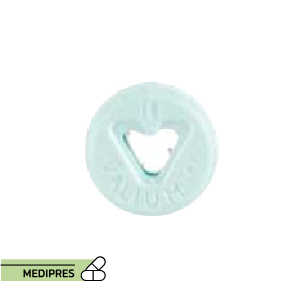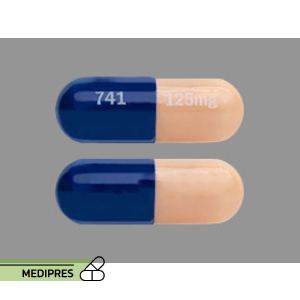
Vitamin E
23 June, 2023
Vraylar
23 June, 2023Votrient
Category: V
Description
Generic name:
pazopanib
Drug class:
Tyrosine kinase inhibitor targeting vascular endothelial growth factor receptors (VEGFR), platelet-derived growth factor receptors (PDGFR), and KIT.
Dosage form:
- 200 mg film‐coated tablets
Root of administration:
Oral
Dose:
- Standard: 800 mg once daily
- Dose reduction: 600 mg, 400 mg, or 200 mg once daily for toxicity management
- Varies by indication; consult label.
Mechanism of action:
Pazopanib selectively inhibits multiple tyrosine kinases including VEGFR-1, VEGFR-2, VEGFR-3, PDGFR-α/β, FGFR-1/3, and KIT, blocking angiogenesis and tumor cell proliferation.
Drug usage cases:
- Advanced renal cell carcinoma
- Advanced soft tissue sarcoma
- Off-label: ovarian cancer, thyroid carcinoma, hepatocellular carcinoma, other solid tumors (varies by region)
Drug contra indications:
- Hypersensitivity to pazopanib or any component of the formulation
- Severe hepatic impairment (Child-Pugh C)
- Pregnancy (risk of fetal harm)
- Breastfeeding
- Concomitant use with strong CYP3A4 inhibitors or inducers without close monitoring
Side effects:
- Hepatotoxicity (elevated ALT, AST, bilirubin)
- Hypertension
- Diarrhea
- Hair color changes (discoloration)
- Nausea and vomiting
- Fatigue
- Anorexia and weight loss
- Hand-foot skin reaction
- QT interval prolongation
- Hypothyroidism
- Bleeding and hemorrhagic events
- Cardiac dysfunction (heart failure, LVEF decrease)
- Gastrointestinal perforation
- Proteinuria
Warnings:
- Monitor liver function tests prior to and during treatment; severe hepatotoxicity reported
- Blood pressure monitoring and management required
- Assess cardiac function; risk of heart failure and QT prolongation
- Avoid use in patients with significant bleeding risk or recent major surgery
- Risk of gastrointestinal perforation and fistula formation
- Wound healing complications; discontinue before major surgery
- Use caution in hypothyroid patients; thyroid function monitoring recommended
- Drug interactions: CYP3A4 substrates, inhibitors, and inducers
- Risk of embryo-fetal toxicity; ensure effective contraception
Use during pregnancy or breastfeeding:
May cause fetal harm when administered to pregnant women. Women of childbearing potential should use effective contraception during treatment and for at least 2 weeks after the last dose. Pazopanib is excreted in animal milk; breastfeeding is not recommended during treatment and for 2 weeks after the final dose.



